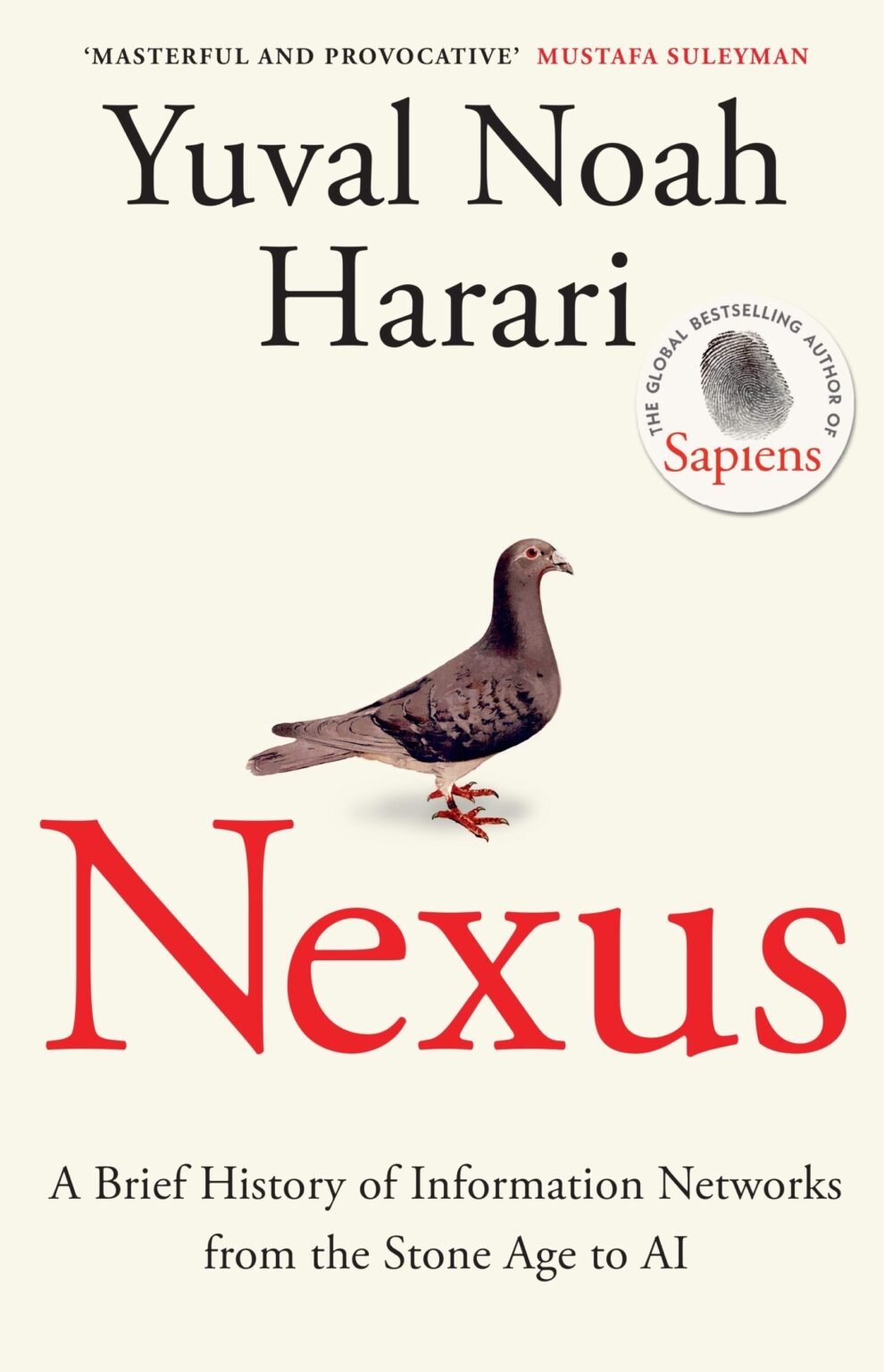Yuval Noah Harari, author of “Sapiens,” “Homo Deus,” and “21 Lessons for the 21st Century,” recently released his new book “Nexus,” in which he examines how information networks have shaped human society from the Stone Age to the present. Building on his previous work exploring the intersections of technology, biology, and culture, he dedicates this book to analysing the historical patterns of how humans have created, shared, and used information across millennia. He reveals the complexities of information, how it models human behaviour and influences the way we engage with society.
At its core, “Nexus” questions what Harari calls the “naive view of information” – the assumption that more data leads to better decisions and progress. Impeccably structured through three sections, the book traces the evolution of our information systems, from purely human to hybrid networks, where machines and computers play an ever-increasing role. With great examples drawn from a revisionist analysis of history, explored in detail –more like case studies than mere illustrations, the book offers profound insights into how information systems shape societal development and ideology.
One of the examples he mentions (particularly remarkable) is the creation of the printing press. Unlike the common belief that it immediately contributed to a more scientific society, Harari explains how it amplified superstition and propaganda by disseminating dogmatic versions of religious texts and, more tragically, spreading the belief in the heretic idea of witchcraft that led to unjust trials, torture and arbitrary executions.
Equally sharp is his analysis of the Soviet Union, where the regime’s idolisation of data collection proved catastrophic. Despite amassing unprecedented amounts of information, the Soviet system crumbled under the weight of its misinterpretation. This cautionary tale led to the execution of scientists who refused to frame their insights with Stalin’s political agenda and, later on, to Chornobyl, one of the most tragic human and biological disasters in history, where, nonetheless, official state numbers showed that no more than 36 people died as its direct consequence.
Drawing on these historical examples, Harari reveals recurring patterns that mirror our current predicament with digital technologies. As we navigate today’s flood of information, from big data extraction to AI-driven analytics, we are committing the same fundamental mistake: confusing the abundance of information with the wisdom to use it effectively. This, Harari warns, may not just lead to the rise of charismatic strongmen turning democratic governments into totalitarian regimes (phenomenons seen before in history with fascism and communism), but, even worse, to their self-fulfilled demise due to algorithmic recommendation systems that may turn back against them, leaving society adrift.
The book moves from explaining simple but necessary distinctions between data and information to considering democracy’s role in our networked future. As AI systems are being used to extract more data from our bodies, behaviours, thoughts, and environments and also interpret our collective data in ways that are hard to supervise, Harari proposes democracy not as an idealised solution but as a tested framework for managing complex information flows—the best possible solution in the real world. Yet this framework faces new challenges: echo chambers reshape public discourse, while trust in institutions slowly but steadily loses strength.
In sum, “Nexus” combines scholarly insight with human empathy, acknowledging the mechanics of networks and their impact on daily life. Harari’s measured analysis prompts essential questions: Can human judgment remain central as machine learning increasingly interprets our world? What happens to public discourse when our information networks prioritise competition over understanding? These questions flow naturally from his exploration, suggesting that our relationship with information networks deserves our attention and careful consideration. With characteristic insight and eloquence, Harari has once again crafted a compelling narrative that helps us make sense of our rapidly evolving information age.
